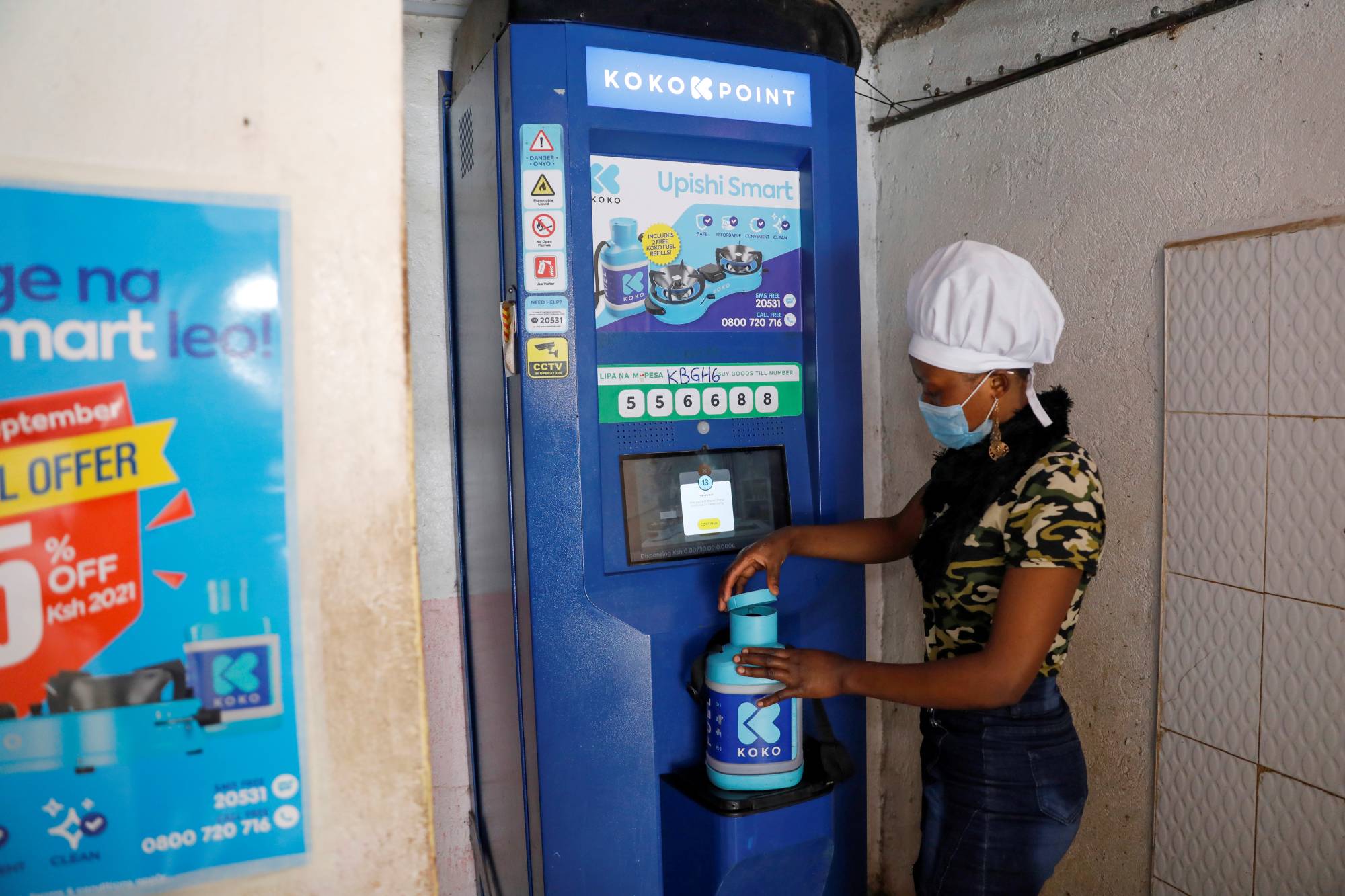Cooking fuels used across sub-Saharan Africa are a double engine of global warming. Tropical forests and savanna woodlands are hacked down to supply charcoal and firewood, removing an invaluable carbon sink. Then the choking smoke from millions of cooking fires releases planet-warming pollution alongside carbon monoxide that sickens millions of Africans.
That’s the dual problem Greg Murray and three other co-founders set out to solve when they established Koko Networks in Nairobi, the capital of Kenya. Today the company supplies more than 675,000 households with clean-burning ethanol, which is used in the company’s cookers and sold over an app.
It’s a sign of the difficulty in devising a climate solution in a developing nation: Encouraging cleaner cooking methods and safeguarding public health carry their own climate costs. Koko subsidizes its business through the sale of carbon credits, earning income that helps lower the cost of its much cleaner fuel. But doing so could potentially nullify some of the gains by allowing businesses in other parts of the world to continue emitting.

















With your current subscription plan you can comment on stories. However, before writing your first comment, please create a display name in the Profile section of your subscriber account page.